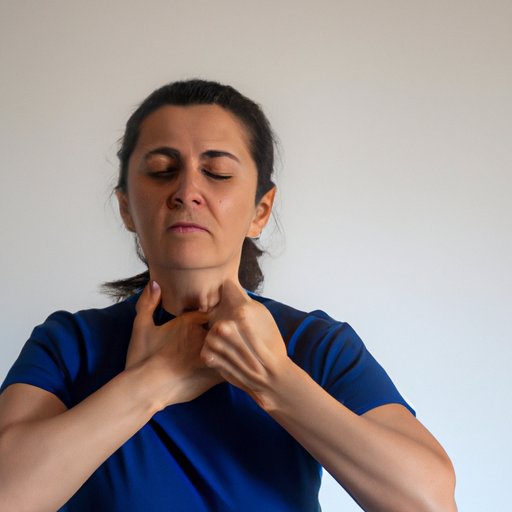I. Introduction
Pneumonia is a common condition that affects the lungs, causing inflammation and fluid buildup. It can be caused by bacteria, viruses, or fungi and can range from mild to severe. Symptoms can include coughing, chest pain, fever, and fatigue. If left untreated, pneumonia can cause serious health problems. However, with proper treatment, most people can recover fully. This article provides a comprehensive guide on how to treat pneumonia, including home remedies, prescription medication, and breathing exercises.
II. Understanding Pneumonia
Pneumonia is a lung infection that causes inflammation in the air sacs. This inflammation causes fluid to build up, making it difficult to breathe. Pneumonia can be caused by bacteria, viruses, or fungi and can range from mild to severe. It can affect people of all ages but is most dangerous for people with weakened immune systems, children, and older adults.
There are two types of pneumonia, community-acquired pneumonia (CAP) and hospital-acquired pneumonia (HAP). CAP is acquired outside of the hospital, whereas HAP is acquired during a hospital stay. Viral pneumonia is another type of pneumonia caused by a virus, such as influenza.
III. Symptoms and Diagnosis
Symptoms of pneumonia can vary but typically include coughing, chest pain, fever, and fatigue. Other symptoms may include shortness of breath, sweating, and loss of appetite. Pneumonia is diagnosed through a physical exam, chest X-ray, and blood test.
IV. Treating Pneumonia: A Comprehensive Guide
Seeking medical advice and early diagnosis is important in treating pneumonia. If antibiotics are prescribed, it is essential to take the full course of medication, even if symptoms improve. Failing to do so can allow the bacteria to grow and become more resistant.
Breathing exercises can also help manage symptoms of pneumonia. Deep breathing exercises, using an incentive spirometer, can help improve lung function and prevent pneumonia complications.
It is essential to understand potential side effects of medication and when to seek medical attention. Antibiotics can cause nausea, diarrhea, and allergic reactions. Symptoms that require urgent medical attention include difficulty breathing, chest pain, and coughing up blood.
V. Treating Pneumonia at Home
If pneumonia symptoms are mild and caught early, it may be possible to manage symptoms at home. It is important to get plenty of rest and stay hydrated to help your body fight the infection. Warm liquids can also help soothe the throat and loosen mucus. Over-the-counter medications, such as acetaminophen, can help reduce fever and ease pain.
It is essential to manage breathing difficulties and other symptoms. Elevating the head of the bed can help ease breathing and coughing. Humidifiers or steam inhalation can also help relieve chest congestion.
VI. Types of Pneumonia and Treatments
There are many types of pneumonia, and treatment can vary. CAP is typically treated with antibiotics and pain relievers. HAP can require stronger antibiotics or antifungal medication. Viral pneumonia can be more challenging to treat and may require antiviral medication.
VII. Prevention of Pneumonia
There are preventative measures that can be taken to reduce the risk of pneumonia. Adopting healthy habits, such as washing hands frequently, avoiding close contact with sick people, and maintaining a healthy diet, can help reduce the risk of contracting pneumonia. Vaccinations against pneumococcal disease and the flu can also help prevent pneumonia.
People at high risk of contracting pneumonia, such as young children, older adults, and people with weakened immune systems, should take extra precautions. This may include avoiding large crowds, staying home when sick, and practicing good hand hygiene.
VIII. Latest Research and Treatment Advancements
The field of pneumonia research and treatment is constantly evolving. Advances in vaccines and medication have made pneumonia easier to treat. New research has also shown that some types of bacteria responsible for pneumonia may be sensitive to vitamin C. More research is needed to confirm this finding and its implications for treatment.
IX. Conclusion
Pneumonia can cause serious health problems if left untreated. However, with proper medical attention, most people can recover fully. Understanding the symptoms, diagnosis, and available treatments is essential. Home remedies can also help manage symptoms in mild cases. Healthy habits, vaccinations, and preventative measures can help reduce the risk of contracting pneumonia. Overall, there is hope and a positive outlook for those diagnosed and have access to effective treatments.
